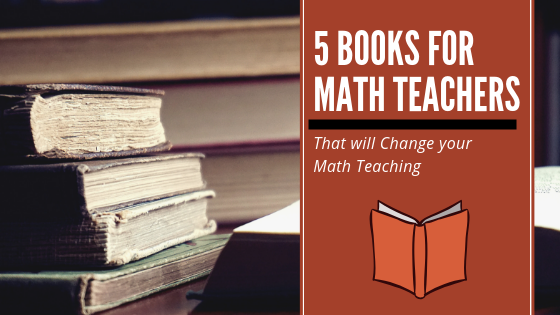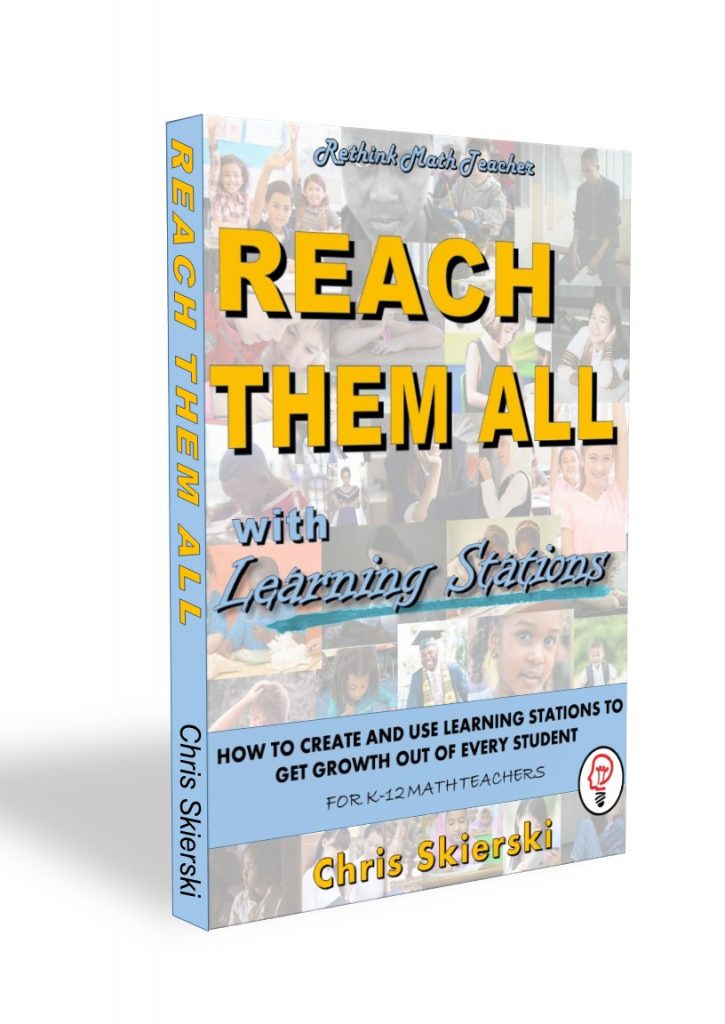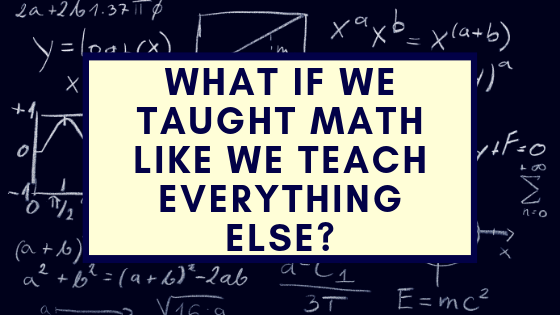
Think about how you learn a new skill? Any skill. It could be a foreign language, a musical instrument, a technique in a sporting event, an art, craft, or even something academic.
First you are shown how to do it, then you practice it while receiving immediate feedback. You continue to practice it until you have mastered it. And then, only after having mastered it, do you move on to a new skill.
All of these steps are required to learn the skill.
Quality Instruction
Regardless of the skill being taught, the first thing we do is have someone teach or model it for us. We might watch a video, read a book, or be taught by a teacher, but we always need some type of instruction.
What skill have you recently learned how to do? I recently had to do some work on my car, so I watched a YouTube video to see someone else showing me the proper form. If you are trying to learn a musical instrument, no doubt you have someone showing you the basics. In math, we need someone to model the correct steps and explain the reasoning for this process.
Practice
Once you have learned the proper technique for a skill, it must be done over and over again for it to become mastered. This process of repeating it helps it move into your long term memory, so that the completion of the task will become natural – requiring no thought. Musicians will read a note on the sheet of paper and quickly play it correctly without having to think what note it is and what the proper fingering on the instrument is required. They do it intuitively because the process has been committed to memory. As a math teacher, you likely no longer have to think about how to add mixed numbers or what the rules are for slope, you simply see the problem and instinctively solver.
Experts say that it takes between 15 and 30 repetitions to learn a new skill. But that’s for your average student. Your weaker students require more than 30 repetitions.
We all are naturals at certain skills, and we need less repetitions; and we all are not naturals at other skills and require more repetitions. I am terrible at skate boarding, surfing, and snowboard. My foot coordination is poor – so I required significantly more practice than most to master the skill. However, most mechanical process like working on an engine or wiring something electrical, I pick up rather quickly, so I require less practice. This is just how I am wired. Your students have the same wiring; they’re natural at some skills and not at others.
Many of your struggling students are not naturals at math, so they require more than the 30 repetitions to master the concept. Sadly, most teachers are not accommodating these students. They are simply teaching the skill, giving what would be sufficient practice for them, and then moving on.
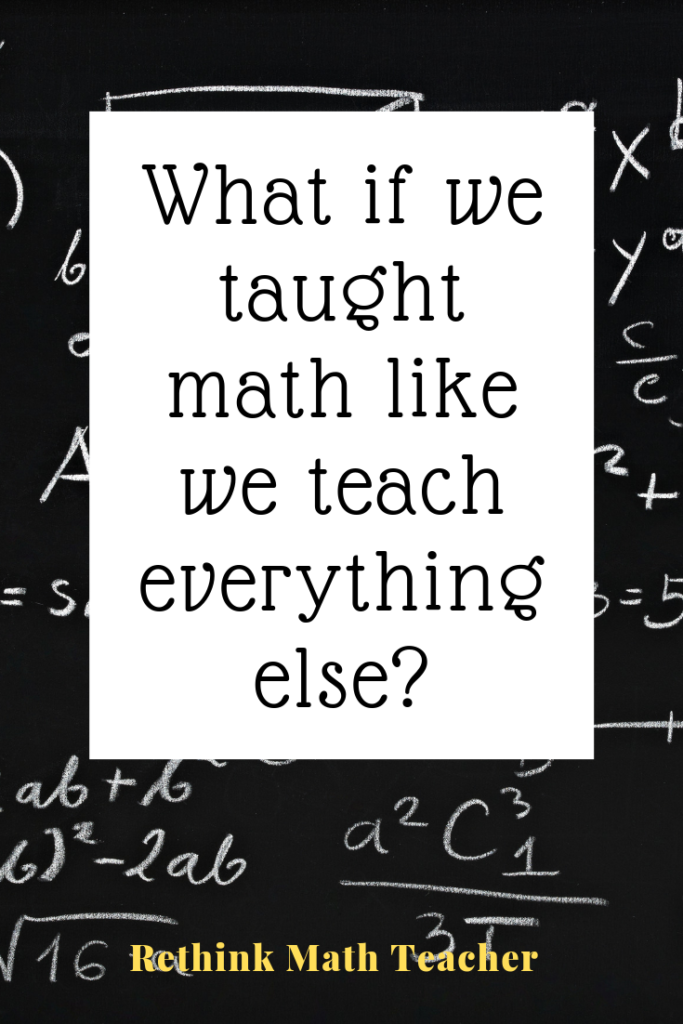
Immediate Feedback
Vince Lombardi famously said,
“Practice does not make perfect, it makes permanent. Only perfect practice makes perfect.“
There’s nothing worse than learning something the wrong way.
I coached basketball for many years. One of the most difficult tasks was to try to teach someone the correct shooting form, when they had already learned the poor one. Breaking this habit is difficult because the wrong way has already been committed to muscle memory and becomes natural.
In the same manner, it is difficult to try to teach a student a math skill when they have been doing it the wrong way for an extended period of time.
Besides helping in the learning process, providing immediate feedback allows students to learn from their mistakes. This will help aid in the process of learning the correct method because when a mistake is mad, it is quickly realized, and the learner is forced to evaluate their methods to discover why it was incorrect.
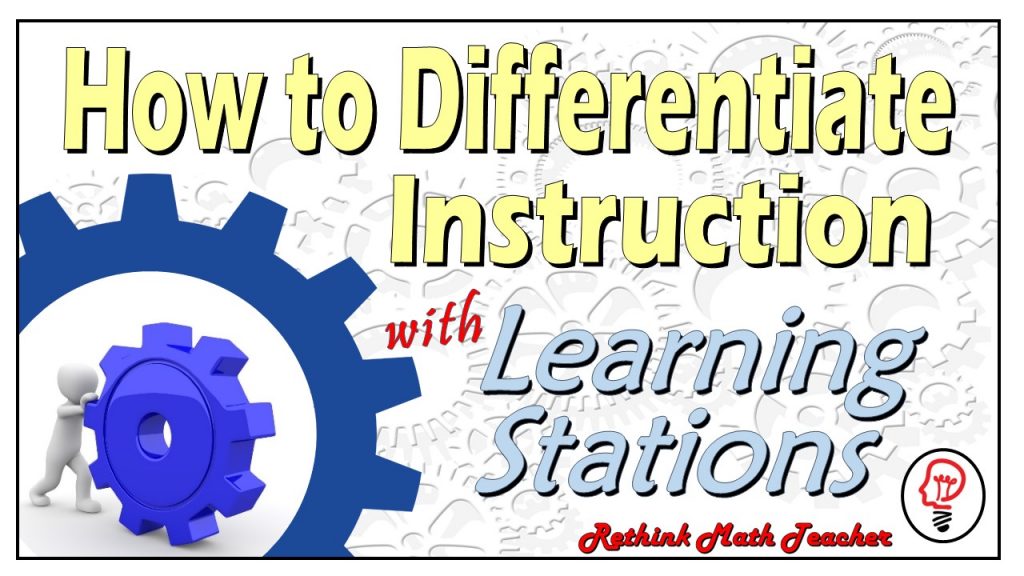
Requiring Mastery Before Accelerating
If I was teaching a child to ride a bike, and after several tutorials and a quiz it was apparent that they had bad balance and were not very good at stopping, it would be silly to progress them to the next skill (removing the training wheels or giving them a unicycle).
Instead, we would target those skills that they need to develop until they could master the skill of riding the bicycle, and then progress them to more difficult tasks.
Unfortunately, we don’t do this when we teach math. We teach the skill, give a test, and then move on. But what about those students who did not demonstrate mastery on the test? Why are they being moved on?
The reason we move them on is because we favor whole group instruction. But your students are not all the same. Some have mastered the concept and are ready to move on, and some have not and require more practice with immediate feedback.
To reach all the students in the class you must differentiate your instruction.
Your students who have demonstrated mastery need to be progressed to the next skill, while your student who need more time and practice need to be afforded that.
I accomplish this in Skills-Based Learning Stations.
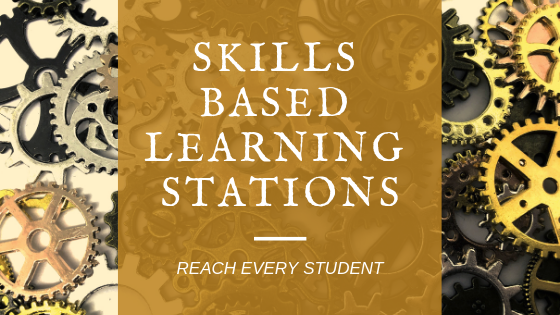
More articles about Learning Stations
- Uncommon Teacher Challenge
- 7 Reasons to Differentiate your Instruction
- What is Differentiated Instruction
- Challenging Your Stronger Students While Reaching Your Weaker Ones
- How to Differentiate Instruction in Your Math Class
- Differentiated Remediation
- Plugging the Holes – Remediation that Works
- Why You Should Create Learning Stations

